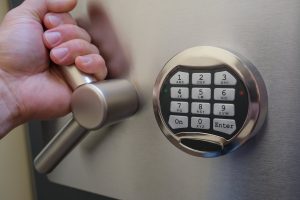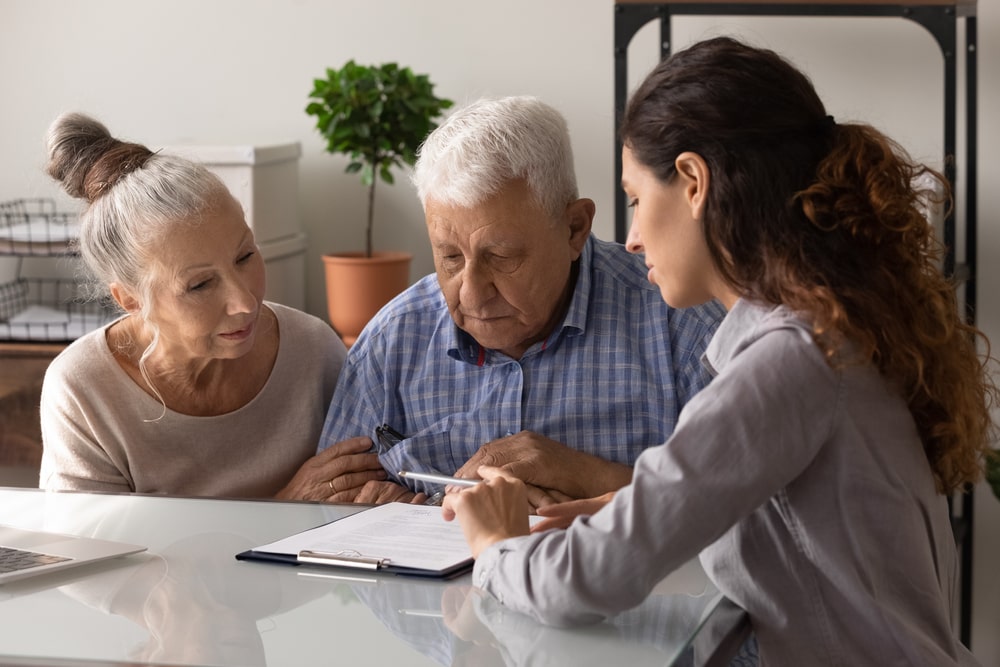If you have entered hospice care, it’s important to make sure that your emergency contacts know certain things about your health and wishes. An emergency contact is a trustworthy person who will represent your interests if you’re unable to do so yourself. In most cases, emergency contacts are a loved one such as a parent, spouse/significant other, adult child, or trusted friend.
If possible, it’s best to have at least TWO emergency contacts. This way, they will be able to work together or, if one is unavailable, the other can take charge. It’s best to select a person(s) who will follow through with your wishes, even if they don’t personally agree with what you’ve decided. Once you have selected your emergency contacts, it’s time to have a conversation about your wishes. Too often, emergency contacts are unprepared for the tasks they face, or they are left with a mess to unravel. By taking a little time now, you can set the record straight about your wishes.
Conversation Tips
- Set up a time to talk with each emergency contact individually or bring them together at the same time.
- Select a quiet, private place so that you can share freely.
- Share your reasons for getting your affairs in order.
- Tell them where you keep your important documents, and if you’ve completed a funeral plan, give them a copy.
- Listen to any concerns they may have and answer questions.
Six Things Your Emergency Contacts Need to Know
1. The Location of Your Legal Documents and Insurance Policies
Your emergency contacts need to know where to find important documents like your legal will, birth and marriage certificates, deeds, titles, insurance policies, powers of attorney documents, health care directives, funeral planning documents, and records of creditors as well as assets, including digital assets and passwords. If you don’t have a legal will, consider creating one, and be sure to review your insurance policies and update your beneficiary information. Also, if needed, consider whether it is appropriate to give your emergency contacts power of attorney (medical and/or financial). This way they can handle your financial matters in case you are unable to do so. If you have questions, make an appointment with an attorney to review these legal matters.
2. The Terms of Your Will and Trusts
Be sure to go over your will with your emergency contacts. This includes your wishes for the distribution of your assets, heirlooms, furniture, and keepsakes. To ensure that your wishes are honored, include as many of your assets in the will as possible. It is possible that you will appoint one of your emergency contacts as the executor of your will. Be sure to let your executor know the contents of your will so there are no surprises. If there are any belongings or assets that are not directly addressed in the will, be sure to cover your wishes with at least two of your emergency contacts and put your wishes in writing. Additionally, you may also wish to set up trusts for your children or grandchildren with certain terms. Consider appointing one of your emergency contacts as trustee and discuss the terms of those trusts.
3. Your Wishes for Medical Care
Have you made your medical wishes known through an advance care directive? Have you given your emergency contacts medical power of attorney? These documents will protect you in case you become incapacitated and/or unable to make medical decisions for yourself, which is possible during hospice care. Be sure to talk to whomever you’ve appointed as your medical power of attorney about your wishes for medical treatment and life-saving measures.
4. Allergies and Blood Type
If you have allergies to foods or medications, your emergency contacts should know so that they can alert medical professionals if you are unable to do so. It is also a good idea to provide your emergency contacts with a record of your blood type in case of emergency.
5. The Care of Your Dependents and Pets
Be sure that you have made provision for the care of your dependents should anything happen to you as the primary caregiver. The same is true for your pets. Let your emergency contacts know who you name as guardian and how you would like any insurance policy benefits, 401(k) funds, or other assets to be set up after your death to provide financially for your children. If you have a family member or friend who is willing to care for your pets, be sure to contact that person to let them know your wishes.
6. Your Funeral Wishes and Plans
One way we can love and protect those we will leave behind is to put together a healing and meaningful funeral plan. The best way to do this is with a licensed funeral director. If you are unable to visit the funeral home, they can come to you. The funeral director can educate you about your options so you can make decisions that are good for you and your loved ones. Your local funeral director or advance planning specialist will ensure that your plan is practical, legal, within your budget, and ultimately, healthy for your grieving family. Be sure to give your emergency contacts a copy of your funeral plans so that they know which funeral home to work with and your wishes don’t get lost in the shuffle.
Address Your Loved Ones’ Concerns
Depending on who your emergency contacts are, they may express some concern when you discuss your funeral plans. Some of the most common reactions include:
Denial. Funerals are a subject most people would rather avoid. So, your spouse or children may say, “Don’t worry about it. We will take care of this later. Let’s not talk about it now.” Listen to their concerns, but keep in mind that denial is not an effective strategy. The most loving thing you can do is take care of as much as possible in advance.
Disagreement. You may encounter some opposition to your plans if your emergency contacts are people who are very close to you. They may have ideas of their own on the topic. You will need to review your plans and determine if anything is up for debate or not.
Keep Your Documents Safe and Accessible
Lastly, put all of your important documents in a safe place. Make sure that your emergency contacts know where to find them. If you decide to keep your documents in a safe, share the combination with your emergency contacts. Some people may choose to use a safety deposit box. If you do so, coordinate with the bank to ensure that your emergency contacts have access to it. As an alternative, you might consider purchasing a watertight, fire-proof, easily transportable container. This way, your documents are safe and transportable.
For a complete list of information your emergency contacts need to know, download this helpful checklist: What Your Emergency Contacts Should Know. Be sure to consult trusted professionals, such as an estate planning attorney and your local funeral director, as needed.









